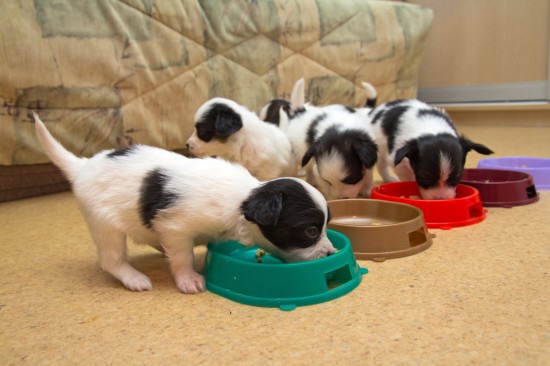
Raising a calf takes some time for it to achieve its full growth. It takes about five months to stay with its mother until it is separated. If the beef calf is an orphan, you have to supplement the mother cow's milk with whole milk and feed it using a baby bottle. It will take about eight weeks before it can start eating grass, hay, or calf feed. It will take you about two years to raise a calf from the time of its birth up to the time it is slaughtered for meat. Depending on the kind of meat, the calf is raised not later than six months if you want to have it as a veal. If you want to have baby beef you will have to raise it for at least six months to less than a year, outside the one year period, its meat develop into a regular beef. Due to the time frame that it takes in raising a calf for beef, you need to feed it properly and adequately until the optimal size is reached.
Raising a calf also involves considering the method of caring, feeding and raising it. One method that has gained recent popularity is the organic method wherein no chemical additives are used in calf feed. Likewise, the grains which are to be fed to the cattle should be produced in an organic manner. There should be no artificial supplements that are fed to the calf. Range-fed method is also similar to organic method which means that the calf is fed on grasses and grains solely. These methods produce healthy cows which a lot of smallholders or those who raise a calf for personal consumption prefer. However, these methods may not be ideal for commercial cattle raisers since it may be difficult to have a good yield without these supplements. Raising a calf for commercial purpose means fattening up the calf well and that is why enhancers are often used. Natural method is another way of raising a calf wherein neither antibiotics nor growth-promoting products are given to the calf.
Providing the calf shelter, a land to graze on, and fencing your land is necessary so that it will grow safely and comfortably. Raising a calf under stressful atmosphere and conditions will affect it's growth and weight. You should also provide a warm and dry bed or accommodation for your calf and feed it with hay. You might need to feed it with commercial milk once it is separated from its mother. Likewise, when the calf is beginning to grow, you have to teach it how to drink water from a bucket since it is not yet familiar with this process of drinking. As your calf grows, you then gradually feed it with commercial concentrates together with some hay.
Remember that raising a calf involves treating it and handling it with care. Carefully observe the calves everyday regardless of their number. Look for signs and symptoms of diseases or parasites that may affect them. Early detection will spare you from further costs. Sometimes it can even cause deaths of your calves and this means profit loss. You have to keep track of the calf's weight and height so that you will know if it is growing properly and healthily. Make sure that you are knowledgeable in raising cattle so that you will not operate your farm at a loss. Talk to experienced local cattle raisers and read books on cattle farming.
Are you planning to learn more tips about raising calves and cattle? Raising cattle can improve quality of life and provide great satisfaction and responsibility for families. Explore your options and then decide. If you would like more tips on cattle handling and how to raise cattle, just go to: howtoraisecattle.com
 Dogs And Dinnertime - Dogs And Their Attitude To Food
Dogs And Dinnerti
Dogs And Dinnertime - Dogs And Their Attitude To Food
Dogs And Dinnerti
 Why It Is Important Not To Over-exercise Puppies
Why It Is Importa
Why It Is Important Not To Over-exercise Puppies
Why It Is Importa
 Larger Dog Breeds And Digestive Issues
Larger Dog Breeds
Larger Dog Breeds And Digestive Issues
Larger Dog Breeds
 5 Common Species Of Terrapins That Make Great Pets
5 Common Species
5 Common Species Of Terrapins That Make Great Pets
5 Common Species
 The Message Of The Dressage
The Message Of Th
The Message Of The Dressage
The Message Of Th
Copyright © 2005-2016 Pet Information All Rights Reserved
Contact us: www162date@outlook.com